How one YouTuber turned Dark Souls lore into a living
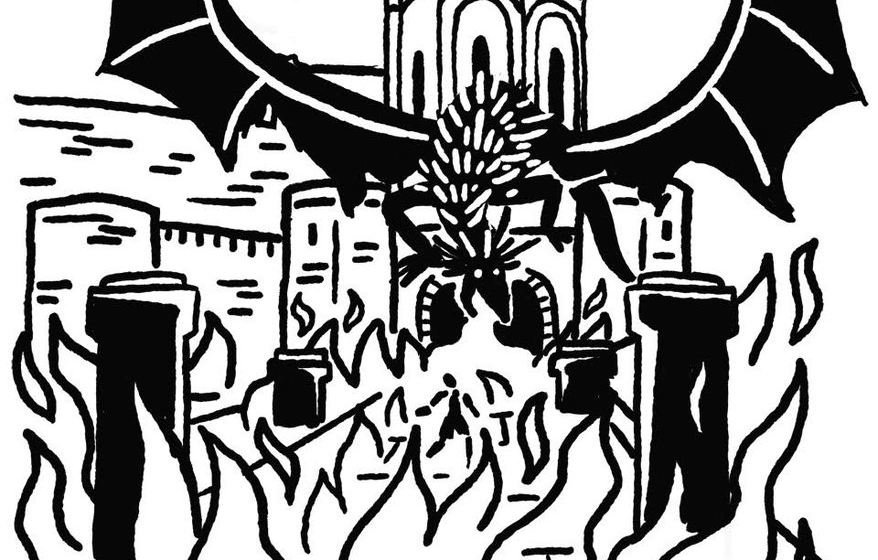
The following is an excerpt from You Died: The Dark Souls Companion, a book about Dark Souls and the delightfully mad people who play it by Keza MacDonald and Jason Killingsworth. You can buy it here in paperback (worldwide shipping), or on Amazon or iBooks as an eBook.
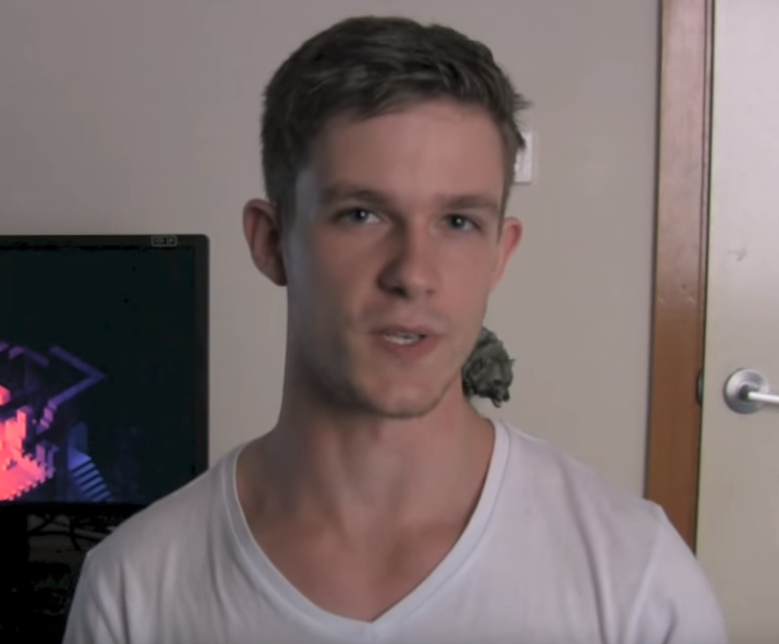
VaatiVidya spends his days making YouTube videos diving into the lore and secrets of FromSoftware's enigmatic Souls games. He rarely appears on camera, saving his more casual videos for Patreon subscribers.
Michael Samuels, known to his fans as VaatiVidya, dropped out of university this past year to become a full-time scholar. His field of study? FromSoftware’s Souls series and its next-of-kin Bloodborne, which he’s been making artful, entertaining videos about since late 2012. In the three-and-a-half years since he launched his YouTube channel, he’s amassed over half a million subscribers. Despite having the face of an Abercrombie & Fitch catalogue model, Vaati reacts to limelight in the way the pupil of an eyeball would, shrinking instinctively from view. He is not a quote-unquote YouTube personality. He does not own a webcam.
“I’ve never really felt the need to insert myself into it,” Vaati tells me, sitting at his desk in front of his dual monitors, under the watchful, unblinking gaze of the collectible Sif statue he won in an online competition. “I felt like the channel was never really about me. I think a lot of people who do YouTube for a long time, it sort of ends up being about them because that’s a safe way to go about it. If you make a channel about you, then when Dark Souls inevitably stops being produced, you have something to fall back on. I just always thought that doing the best you can speaks louder than personality.”
More recently Vaati launched a Patreon account—a service that allows people to pay writers, artists or video-producers directly for what they make, in a nod to the patron model of centuries past—to mitigate pressure from YouTube’s ad-based compensation model, which incentivises creators to prioritise volume over quality. At the time of writing, he has almost 800 patrons pledging, collectively, over $4000 each month to enable their favourite Souls content creator to do his thing without the distraction of a separate day job. Not even factoring in Vaati’s YouTube royalties, that’s roughly $50,000 a year to make videos about his favourite video game series. Not bad for an Aussie kid in his early 20s who, for the time being, still lives with his parents in Sydney rent-free (he’s got plans to move out later this year).
I just always thought that doing the best you can speaks louder than personality.
“I doubt very many people at all start with YouTube as a career ambition,” he says. “That’s probably not one of the more clever decisions someone could make, like, ‘I’m going to put all my time and effort into YouTube and expect that to pay the bills.’ Pretty much everyone starts with it as a hobby and I did too. I was doing a uni degree at the time and I just did [the videos] in my spare time. As [the channel] grew it became more and more obvious that I didn’t enjoy doing my university degree nearly as much as I enjoy talking about this video game.”
The considerable success that Vaati has enjoyed to date seems, at first glance, as arbitrary as being tagged by lightning while walking one’s dog. But it seems more logical, if you view it from an entrepreneurial perspective. The most basic requirement of launching a successful business, after all, involves identifying an unmet need and then crafting an elegant, low-cost solution that meets that need. Vaati’s work spun emotionally resonant stories that fleshed out the lore of Dark Souls for players who detected in the game a rich backstory but needed help stitching it all together. Since the game’s story lies scattered about in fragments—explicitly in item descriptions and NPC dialogue trees, implicitly in environmental and architectural minutiae—there was a prime opportunity for some industrious person to mine all that glittering ore, melt it down, and pour it into a tidier narrative mould.
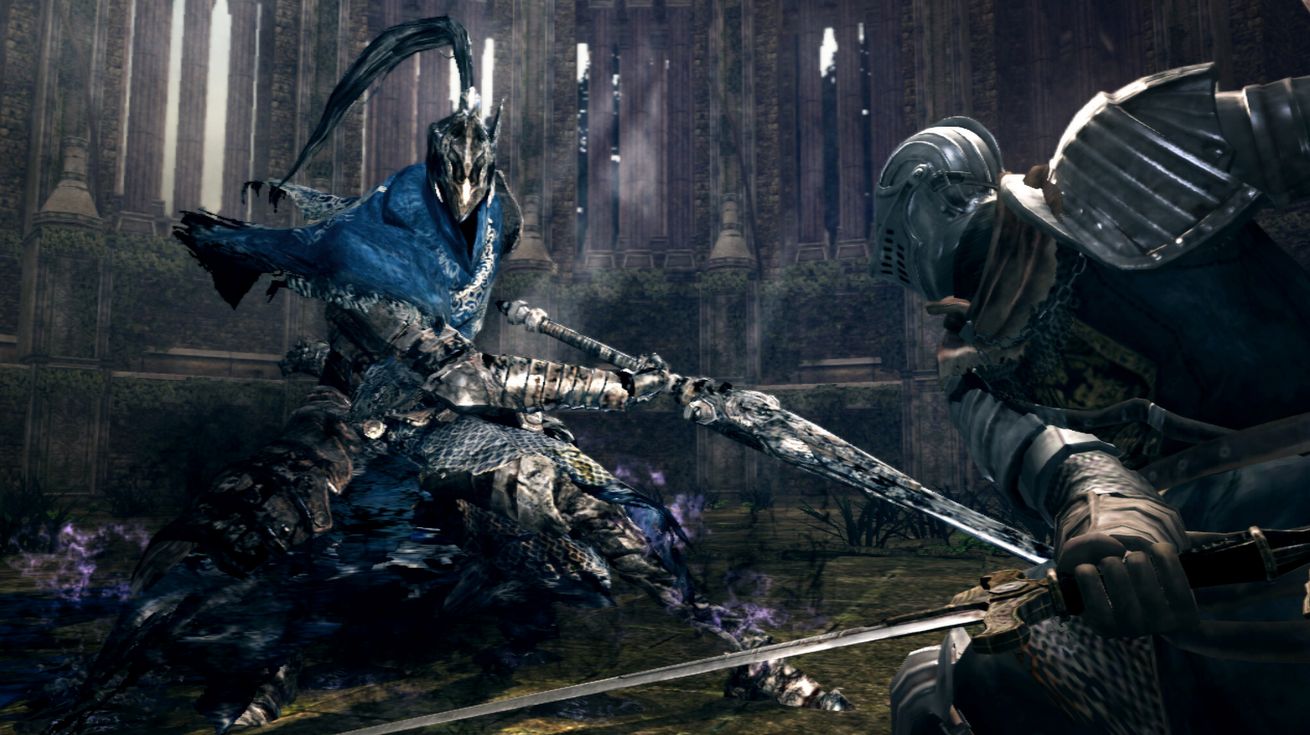
When Vaati launched his channel in September of 2012 shortly after Dark Souls’ PC release, there were other places online where you could go to untangle the game’s plot, but even the various exhaustive Dark Souls wikis simply took the IKEA approach of flatpacking the raw materials and leaving you to piece them together with tongue-chewing force of will. Vaati’s videos do the heavy lifting for you, offering an emotive piece of storytelling, narrated in his own sombre and soulful accent. He then sets these stories against a handsomely edited parade of gameplay footage, concept art, or whatever else he can find. In one of his most-watched videos, ‘Solaire And The Sun’, which currently has 1.24 million views, he even stitches in a few seconds of the trailer for Deus Ex: Human Revolution to support a section of the script comparing Solaire’s quest to Icarus’ fatal brush with the sun.
Keep up to date with the most important stories and the best deals, as picked by the PC Gamer team.
Vaati’s fading cross-cuts between disparate footage lends his own lore videos a dramatic yet brisk movie-trailer pacing. What you’re getting is a vignette, a tease, not a documentary. Despite the frequently bleak subject matter of Souls games, Vaati’s work benefits from the approachability of his videos’ snack-sized running times. “It’s a really fun process,” he tells me, “but the majority of the time is scripting because I don’t just ramble on when I make a video. I don’t want to waste people's time, so I try to make it as succinct as possible. Because that’s what I like to watch on YouTube. I don’t like watching really long-form content.”
Vaati also had the foresight to brand his lore videos so that they had a strong, recognisable identify. He named the series ‘Prepare to Cry’, a somewhat over-earnest but memorable play on Namco-Bandai’s marketing slogan ‘Prepare To Die’. It’s impossible to stare into the world of a Dark Souls character, after all, without being caught in a whirlpool of melancholy, and Vaati plays this dimension up to elicit maximum feels.
“Dark Souls gives you resources that you can interpret in a multitude of ways,” he tells me, “and the way I chose to interpret it was often with a sad twist, bringing out that tragedy. I could talk about a character’s motivations and that could inevitably make the viewer feel something. That’s what Souls does that’s so great. It leaves you wondering, why did they choose to do this? What they did is clear as day, but why did they decide to do it?’”
Dark Souls is better than almost every other game at generating interesting questions. Many of them concern the mechanics of mastering the game itself—why one should consume humanity as opposed to keeping it in the inventory, what the benefit is of joining one covenant over another, which weapon upgrade path to choose, etc. Numerous strategy guides offer answers on those points. But if the answers you want are to questions like, ‘Is either one of Dark Souls’ two possible endings a happy one?’ or ‘Why did the primeval man shatter his Dark Soul into humanity?’ you’re not going to get that in a traditional game guide. And if you go searching for it on YouTube, or even in a Google search field, you’re all but destined to cross paths with VaatiVidya.
Even for players that have gone on to become Dark Souls’ most enthusiastic cheerleaders, the experience of mastering a complex gameplay system doesn’t always click immediately. There’s a barrier, and that barrier is typically one’s flimsy command of the game’s combat interactions. Some people have a will to scale the wall even if it means sliding back down the first 100 attempts, others just fling the controller aside and blame the game’s refusal to offer a shortcut to mastery. Like many of us, Vaati took a little while to find his footing.
The multiplayer is what I fell in love with first, for sure, more than the story even.
He first became aware of the Souls series through a friend who was struggling with the Old King Allant boss fight toward the end of Demon’s Souls. The idea that an action-RPG designer would give a boss the ability to drain hard-earned experience levels from your character seemed almost too evil to fathom. From Software has never upheld the same credo as Google’s much-discussed corporate motto ‘Don’t Be Evil’; the uncodified motto of Souls’ design pod seems to be ‘You can be evil; just don’t be boring’. Vaati was sufficiently intrigued and he’d recently gotten a PlayStation 3, so he gave Demon’s Souls a spin. Despite enjoying the game, he hit a wall around the Flamelurker boss and aborted his quest for the time being.
When Dark Souls came out, Vaati cracked his knuckles and jumped back into the Souls gauntlet. It might be surprising to those whose introduction to Vaati’s work happened to be through his heart-on-sleeve character explorations and soothing, public-radio-style voiceover narration, but it was the competitive PvP aspect of Dark Souls that initially hooked him. “The multiplayer is what I fell in love with first, for sure,” says Vaati, “more than the story even. That was the thing I tried to be really good at. I wish [FromSoftware] would put more emphasis on it. I’m the kind of person who loves multiplayer games; Souls games are pretty much the only other singleplayer I really love on the same level as competitive multiplayer.” Unfortunately, due to the geographical placement of the Dark Souls servers, playing from Australia caused lag to be a crippling feature of competitive play. Even still, Vaati took the time to learn how to compensate and play around it.
Before getting hooked on the Souls series, Vaati primarily spent his time blasting his way through first-person shooter multiplayer modes. He could only afford to buy games on rare occasions and felt like he might as well just get a game like Call of Duty and play it over and over and over until he got good at it. His competitive streak would later spill over into World of Warcraft. Recently he’s been playing Hearthstone, which he describes as an “addictive, terrible game”. He’s tempted by the thought of leaping into Dota or League of Legends due to their high skill-caps, but doesn’t currently have the time to spend mastering a new genre. He’s got videos to make, and the creative process offers its own sort of competitive challenge.
“I suppose [my love of multiplayer] doesn’t really overlap very much with the lore hunting other than the fact that I enjoy the competitive nature of making videos,” he says. “It’s motivating to try to make the most videos, or make the best video you can. I’m sort of in competition with myself. So, if there’s any overlap maybe it’s there. I’m trying to become better at doing this whole YouTube thing. Maybe that’s the parallel.”
But, realistically, he’s not just in competition with himself. What about all the other talented people on YouTube—EpicNameBro, DaveControl, TerraMantis, et al—who make videos discussing the lore of these games with equal vigour? Does Vaati ever feel like he’s locked in competition with other members of the Souls community?
“I think I have contact with almost 99% of people who create something about the community,” he says. “I’ve got a Tumblr page where I’ve been reblogging artists’ Souls work for years now. I love keeping in touch with all the other lore guys, although I don’t watch many other lore videos on YouTube, simply because it’s what I do. When I want to relax, watching someone else's lore video doesn’t entertain or excite me. But I appreciate what they do, because everyone has something to bring to these games.”
There is one stretch of time, however, in which Vaati feels a sense of competition with other Souls video creators, and that’s the ‘capture the flag’-style land grab that inevitably follows the release of any new game, Souls or otherwise. Not because he’s obsessed with getting more views or audience mindshare than other creators, but simply because he feels less motivated to make a particular video when another creator has gotten to it first.
“You want to be the first one who makes that video about how to beat that boss,” he says. “If someone else does it, I’m not annoyed because it’s going to take views from me. I’m annoyed because it’s like, oh, that’s what I wanted to work on. This exists now, it’s good, I can’t do it anymore, I can’t create that anymore. I mean, I could, but why would I want to if that guy’s already done it?”
If you’re an aspiring Souls content creator hoping to glean something instructive from Vaati’s formal education, you’re likely to be disappointed. The university degree he recently abandoned was focused on health systems in Australia. He’d been struggling to figure out what specific aspect of the field he wanted to specialise in, but he was drawn to health as a broader course of study because he was attracted to, in his words, “the helping-people nature of it”. He eventually settled on psychology because he never felt like he was very good at maths or science, which he acknowledges makes his decision to go into the field of health a bit of a puzzling one in the first place.
His favourite subject in high-school had been Extended English, which provided him an opportunity to flex his creative muscles, writing essays on a variety of prompts. During Vaati’s final year, his class was given the theme “After The Bomb” and asked to write an essay about the aftermath of the bombing of Hiroshima, how the availability of such apocalyptic weaponry affected the psyche of humanity on a global scale. Vaati was dealing with real-world issues but he considered what he was doing to be creative writing in the sense that he could explore the nuances of the post-nuclear theme in any way he saw fit.
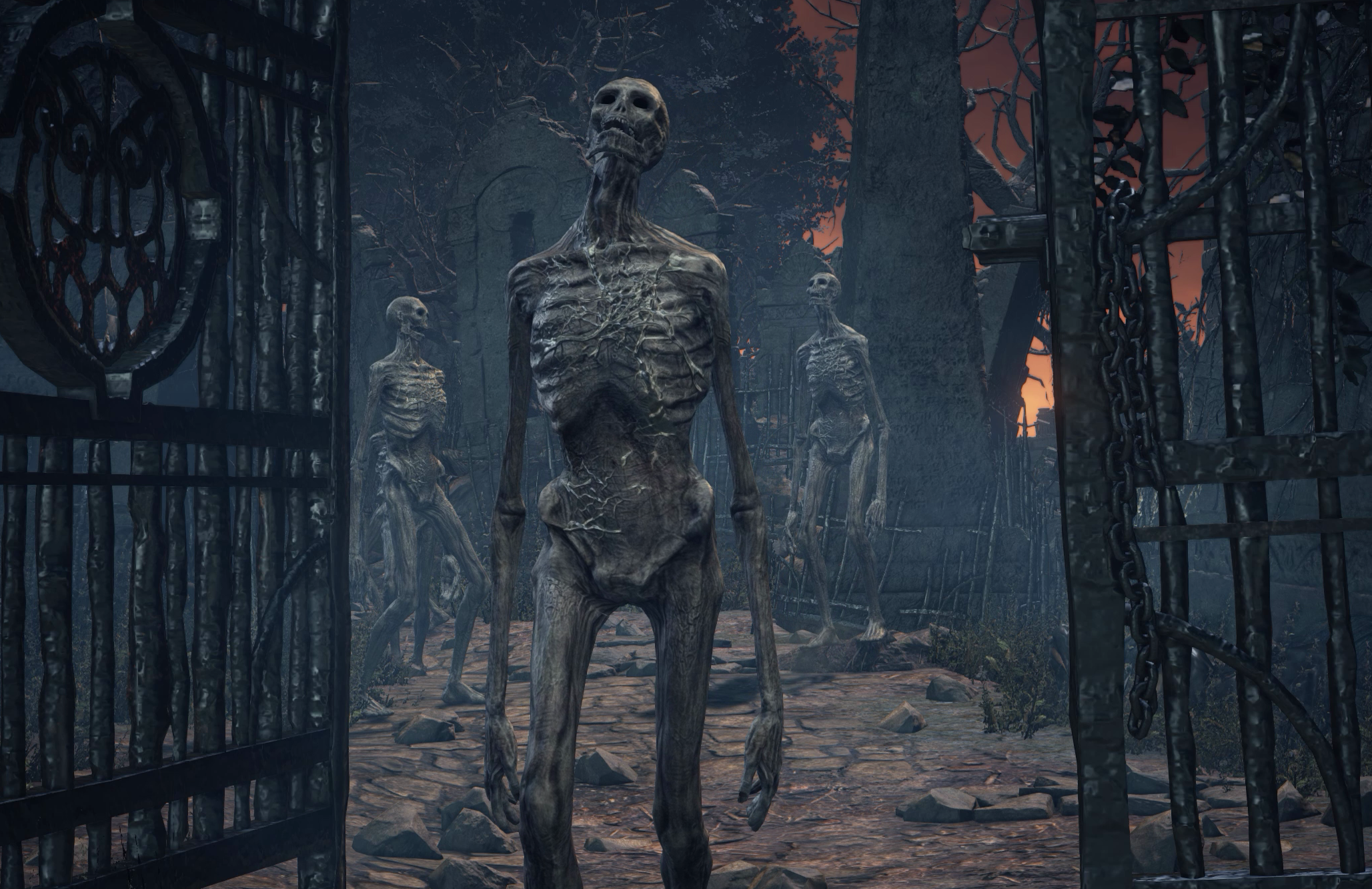
“I think creativity can be best explored a lot of the time when you have a theme to work within,” he says, “Because when you’re talking about true creativity—the ability to do absolutely anything and write about absolutely anything—that’s a bit of an overwhelming thought. With that English degree and then with Dark Souls as well, you’re talking about creating a story with the resources you have available.”
It’s not hard to view his later dabbling in psychology as a telling feature of his personality as well. Vaati’s interest in exploring the connection between characters’ behaviour and underlying motivation seems borne out of the same foundational curiosity.
It gets to the point where you’re going to the cellular level and asking, wait, how did that make me feel this really complex emotion?
“The more you dig into stuff with the brain,” says Vaati, “it gets to the point where you’re going to the cellular level and asking, wait, how did that make me feel this really complex emotion? How did all those neurons firing in that specific way make a chemical that did that? And then you’re back at square one where nothing makes sense anymore, and Dark Souls is like that too. There are still so many plot elements that we don’t know if Miyazaki is just messing with us or if he has anything in his mind to answer these questions. It’s frustrating sometimes, but at the same time, it’s motivating.”
University isn’t the only arena in which a person can learn and grow and explore. A curious person can’t help but research, and Vaati clearly delineates research time as part of his video-making process. He wants to test his theories and make sure he’s getting things right. There’s a nearly scientific rigour to his method. Keeping with the analogy, in a community as spirited as the one that’s grown up around Souls, a creator with as high a profile as Vaati gets more than his share of informal peer review as well. The words he writes are picked over and vetted against all available evidence. It was one such case of peer review, in fact, that gave rise to the most traumatic upheaval in his career—and, arguably, within the wider Dark Souls community—to this day.
When Vaati woke up that morning in July of 2015, it was as if he’d kicked his legs over the side of the bed and stuck his feet into a bubbling lava field. All of his social media accounts, which tend to be busy on the most average of days, were now exploding. The top posts on the Dark Souls subreddit were dissecting his work and comparing it against the work of others in the Souls community for suspicious similarities. It was perhaps the closest one can come in real life to experiencing the sinking feeling of the Chosen Undead the first time he or she revisits the Undead Asylum and has the stones underfoot suddenly crumble away, opening like a giant, terrifying sinkhole.
A member of the Souls community who goes by the handle Aegon of Astora had just dropped the YouTube equivalent of an atomic bomb. His video was provocatively titled “Patreon-supported plagiarist?” and mounted a wide-ranging campaign of accusations. The video, which has since been removed, painted Vaati as an arrogant opportunist who believed himself to exist on a talent plateau above his fellow Souls content creators, yet had no ethical qualms about pilfering their work in assembling his own videos, which he could then turn around and convert into a lucrative, viewer-supported business.
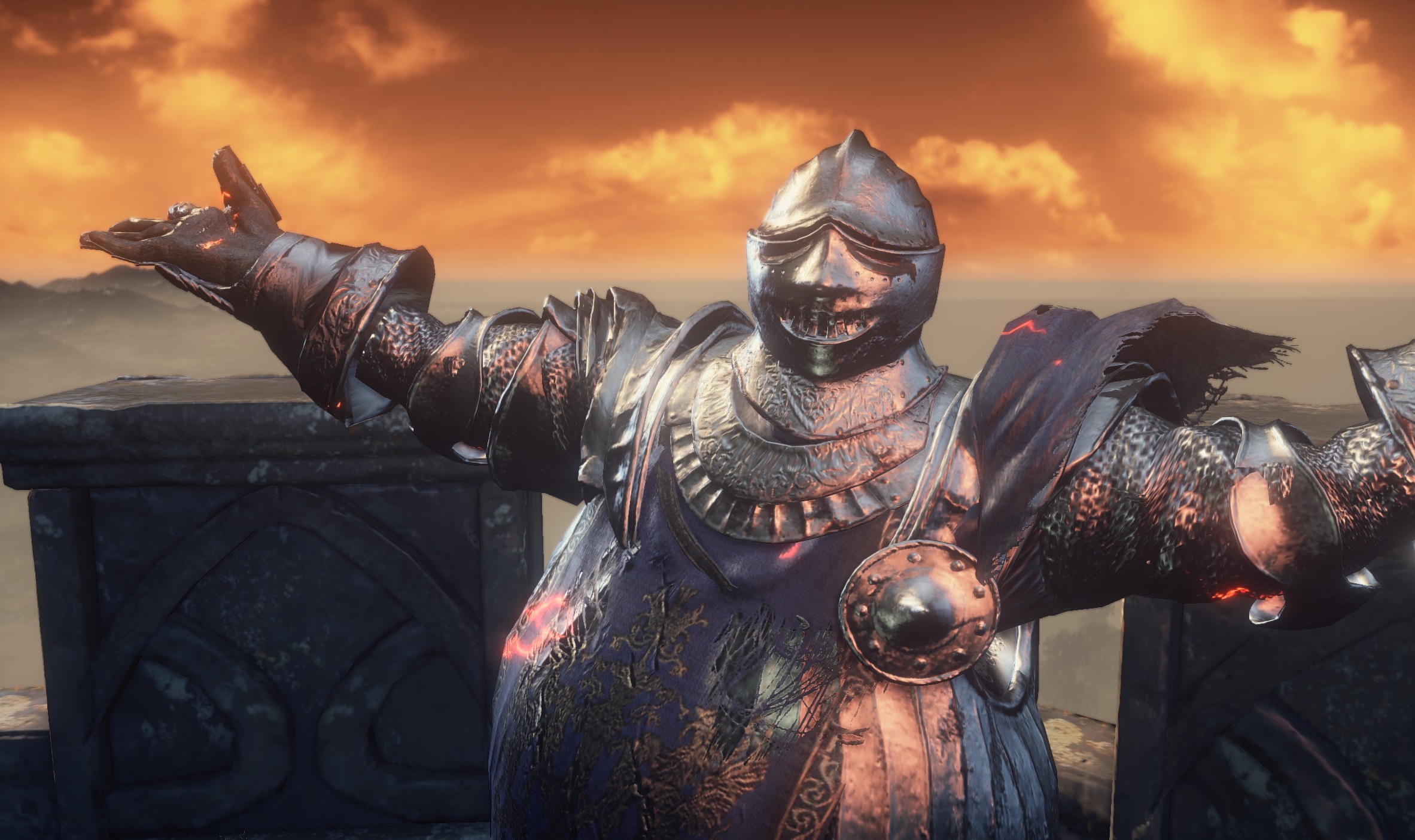
Astora had initially set out to expose what he saw as an alarming lack of source attribution within the Souls content community, but the resulting video quickly devolved into uncharitable assumptions and outright character assassination. As the most prominent lore scholar in the Dark Souls community, Michael ended up the focal point of a flame-war. In a field like Dark Souls, where so much of our knowledge about the game is pieced together collectively, he became a singular villain.
“When I woke up in the morning it was the first thing I read, and I realised that the fires had already been raging for 10 hours,” he sighs. “It was very overwhelming. I found it difficult to go through Aegon's video the whole way without getting angry and upset, but I knew that I had to. I also knew that it wouldn't be good for me to respond without a calm head, but there was a huge weight of messages rushing at me. So the whole ordeal was pretty taxing. In retrospect, I might have been able to cut to the core of what people were upset about, but I don't think my initial response did that. I responded before I had composed a really good rebuttal to all the evidence.”
One commenter transcribed the script of one of Michael’s Bloodborne videos and ran it through some plagiarism-detection software, claiming to have found huge similarities between his work and a fabulously detailed, 107-page work of Bloodborne analysis by another community member named Redgrave. After the initial volley of accusations, community infighting and calls for boycott of Vaati’s work subsided, he spent $50 on the full version of the same software and ran his own independent analysis, which showed the script of his video to be 86% unique, and that’s even without omitting source material such as in-game item descriptions which would obviously be identical in both his work and Redgrave’s.
Aegon of Astora didn’t leave his original video up for long. He took it down and posted a follow-up video clarifying his thoughts and offering a few apologies: to Vaati for some of his more venomous insinuations, and to the community for causing a rift. Vaati appreciated the gesture.
“I'm glad [Aegon] had his opinions heard,” says Vaati, “and I hope he didn't get too much of the same hate that flowed my way. I'm sure he wants to move on from the whole thing just like I do. We all share the same community, and it'd be really shitty to hate other people in that community. I just wish we had talked about it all beforehand.”
When Vaati makes a video today, he asks himself whether it could be improved by explicitly citing the discoveries made by other Souls fans. Lore archaeology has always been a community dig with numerous people clustered around the same fossils, brushing off the soil and consulting with on how the pieces best fit together. This can easily become a stumbling block for someone like Vaati, who’s become a de-facto figurehead in the community. It’s easy for others to feel like he’s absorbed their kudos or, worse, deliberately appropriated their insights and passed them off as his own. The episode with Aegon isn’t just a historical footnote.
What if someone else came up with this exact theory before me, and says I stole it from them?
“Sometimes I'll discover something in-game, write about it in a script then think, what if someone else came up with this exact theory before me, and says I stole it from them?” Vaati acknowledges. “The reality is that a lot of people come to the same conclusions when they look at the evidence, but yeah, I do have that paranoia now.”
Dark Souls prompts a deep sense of ownership based on the expansive freedom that it affords, and it’s easy to feel jealous or protective of the insights we glean on our respective journeys of discovery. The game belongs to all of us, however, and we each share our experiences in a way that’s personal and unique to each one of us. Vaati has a unique voice, and it’s that voice that’s drawn hundreds of thousands of fans to his work.
“People who get the most enjoyment out of [Dark Souls], they get it because they looked at something and made up a story in their mind that made the most sense, and that’s what I’m doing. I’m in no way saying [my take] is right, I’m just putting it out there,” says Michael. “I make a video about it, whereas a lot of people just think about it. What I do isn’t any more special than what heaps of other people do and I encourage other people to have different opinions. I guess my videos hopefully are an example of how good your imagination can be with some of these stories. There’s probably stories to be told that are completely different to mine and might be even better...
“Dark Souls is the only game I can play through again and get a very nostalgic feeling. It doesn’t stress me out playing that game, it just makes me nostalgic because I remember how I reacted to seeing all these things for the first time. There’s probably a more poetic way of putting it. I fell in love with it, I guess.”
This was an excerpt from You Died: The Dark Souls Companion, a book about Dark Souls and the delightfully mad people who play it by Keza MacDonald and Jason Killingsworth. You can buy it here in paperback (worldwide shipping), or on Amazon or iBooks as an eBook.

